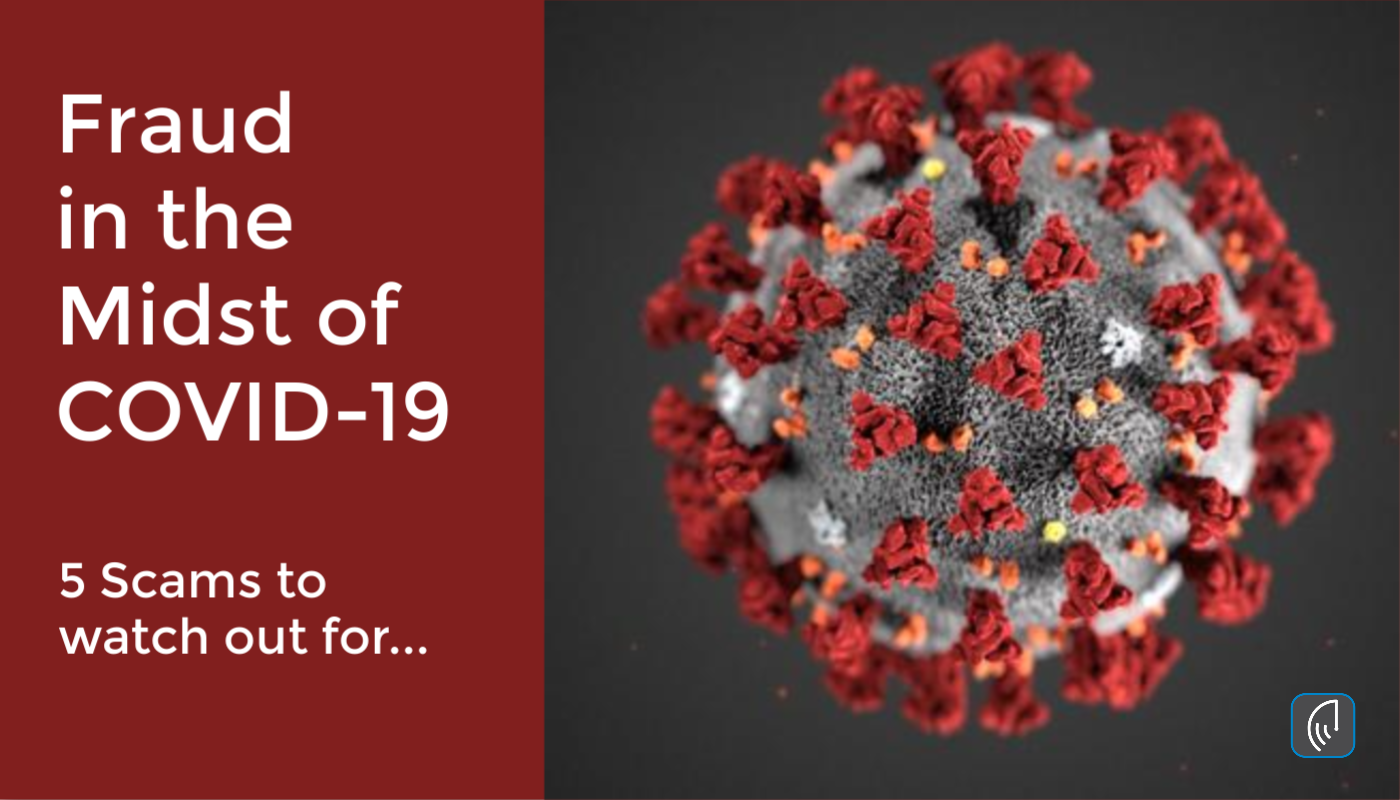With the growing Coronavirus impact on our society, scams are also growing exponentially. Below is a summary of several of the most common scams, and resources to help you stay ahead of this fraud in the midst of COVID-19.
Staying Vigilant Against Fraud in the Midst of COVID-19
In the midst of the COVID-19 pandemic, frauds and scams are emerging. Americans need to be aware that there are individuals attempting to profiteer from this emergency through online phishing scams, door-to-door COVID-19 testing offers, falsely promising free care, etc.
Report Suspected COVID-19 Fraud to National Center for Disaster Fraud Hotline:
(866) 720-5721 or email disaster@leo.gov
Here is what to look for
Below is a list of 5 scams designed to defraud you in the midst of the COVID-19 pandemic.
- Phishing Scams
We are all looking to keep up with all that is happening with the Coronavirus. Our eagerness and fear may be making us more vulnerable to fake coronavirus update emails, and texts. Think before you click on links, ask yourself if it makes sense. You may be one click away from being infected by malware and adding more stress to your life. Do not give out any personal information over the phone!
- Fake Government Representations
The bad guys are pretending to be government representatives. Don’t respond to texts and emails about checks from the government. The details are still being worked out. Anyone who tells you they can get you the money now is a scammer.- Here is an example of a fake Government Representation:
As the U.S. government considers a financial relief package for citizens, false claims of the government sending a $1000 relief check to individuals are already in the works by scammers who seem to be a step ahead of any official decision. Fraudsters are posing as the government to collect your personal information such as Social Security numbers or bank account numbers to send out your “coronavirus financial aid” deposit.
- Here is an example of a fake Government Representation:
- Update and Donation Sites
Websites designed to collect your Personal Identifiable Information (PII) are being published.- Some examples we have seen:
- Coronavirus updates
- Emergency Response Plan Sites
- Donation Sites
- Others include the “sale” of things like facemasks, sanitizer, test kits etc.
- Some examples we have seen:
- NO CURE…
The FTC and FDA have jointly issued warning letters to seven sellers of unapproved and misbranded products, claiming they can treat or prevent the Coronavirus. The companies’ products include teas, essential oils, and colloidal silver.The FTC says the companies have no evidence to back up their claims — as required by law. The FDA says there are no approved vaccines, drugs or investigational products currently available to treat or prevent the virus. Read more about the warning letters. - Fake Jobs
This has affected all of us in one way or another. Unfortunately, some have lost their jobs and are looking for a solution. The dirtbags know this and are creating fake job postings to entice some of us to participate in a scam or to provide PII. Make sure you know what you are applying for and do your research before you provide any information.
We are all dealing with this in our own ways but we need to be careful. Careful with each other but also with potential fraud in the midst of COVID-19.
If you think you have been a victim, please do not hesitate to reach out to us here at defend-id. Or if you spot a fraud please report it:
Report Suspected COVID-19 Fraud to National Center for Disaster Fraud Hotline:
(866) 720-5721 or email disaster@leo.gov
Please stay healthy.
